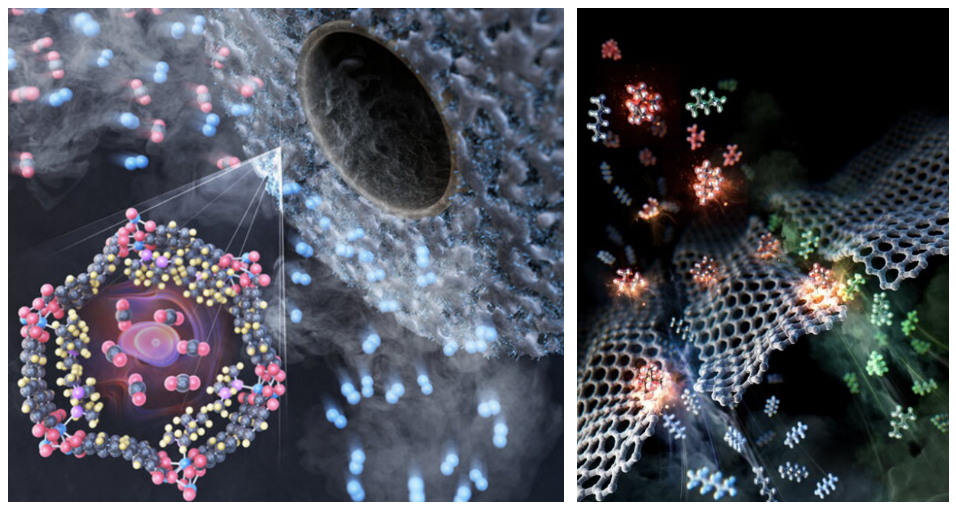The Multidimensional Molecular Materials Laboratory (MMML) is a separation-focused research group in the Department of Chemical and Biomolecular Engineering at KAIST. The ultimate goal of the MMML is to develop a platform technology that can graft advanced materials created in the laboratory into fields where molecular-level separation technology can be used.
Separation processes are indispensable in most chemical industries, such as oil refinery, water purification, pharmaceuticals, and fine chemistry. However, the enormous levels of energy consumption during thermal-based separation account for 10-15% of the worldwide energy demand, leading to a call for the development of a low-energy separation platform. From this standpoint, the interest of the MMML is to design a new generation of separation devices that encourage chemical engineers to resolve the bottlenecks and current problems associated with the current thermal-driven separation process.
The MMML is concentrating its efforts on developing novel adsorbent and membrane materials that can provide low-energy solutions to the world’s most demanding and essential separation processes. In addition to creating new materials, we are working on tackling real-world challenges by combining these materials into scalable and modular systems. For example, an open-porous fiber sorbent with highly uniform MOF (metal-organic framework) crystals (left image) is a next-generation platform for CO2 capturing to mitigate climate change. It provides high carbon capture efficiency rates and cyclic capabilities in flue gas and DAC (direct air capture, 400ppm of CO2) conditions. We also suggested scalable, in-situ MOF synthesis pathways in an inert environment with few handling steps for low-cost adsorbent fabrication. In the advanced membrane separation field, light hydrocarbon gas separation and organic solvent separation methods such as the OSFO (organic solvent forward osmosis) and OSN (organic solvent nanofiltration) types are mainly utilized as low-energy separation processes. Carbon molecular sieve membranes with finely-tuned ultra-micropores (< 0.7nm) achieved forward osmosis molecular differentiation for hexane isomers (C6 hydrocarbons with a size difference of less than 0.1 nm, right image) without any external forces (i.e., pressure). The ultra-microporous and rigid carbon structures can sort isomers of different shapes and sizes (di-branched, mono-branched, and linear molecules), showing the potential for energy-efficient membrane-based separation.
The MMML struggles to have a real-world impact via our research. We are accelerating the development of energy-efficient separation technology in cooperation with domestic and international companies to put the results from our research projects into practice. Members of the MMML are drawn to the realization of low-energy, low-carbon separation technology, which is in line with our climate change response and goal of sustainable development.
Professor Dong-Yeun Koh, Associate Professor in the Department of Chemical and Biomolecular Engineering at KAIST, is the principal investigator of the MMML. He earned his Ph.D. from KAIST and his B.S. from Korea University. He has been an Associate Editor of the Journal of Environmental Chemical Engineering since 2021.







